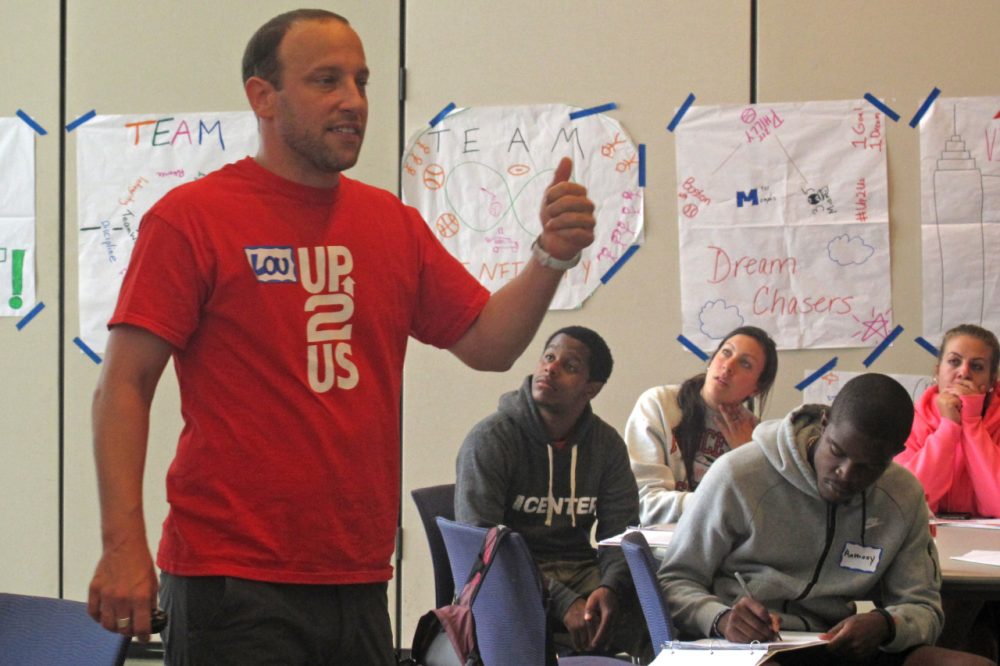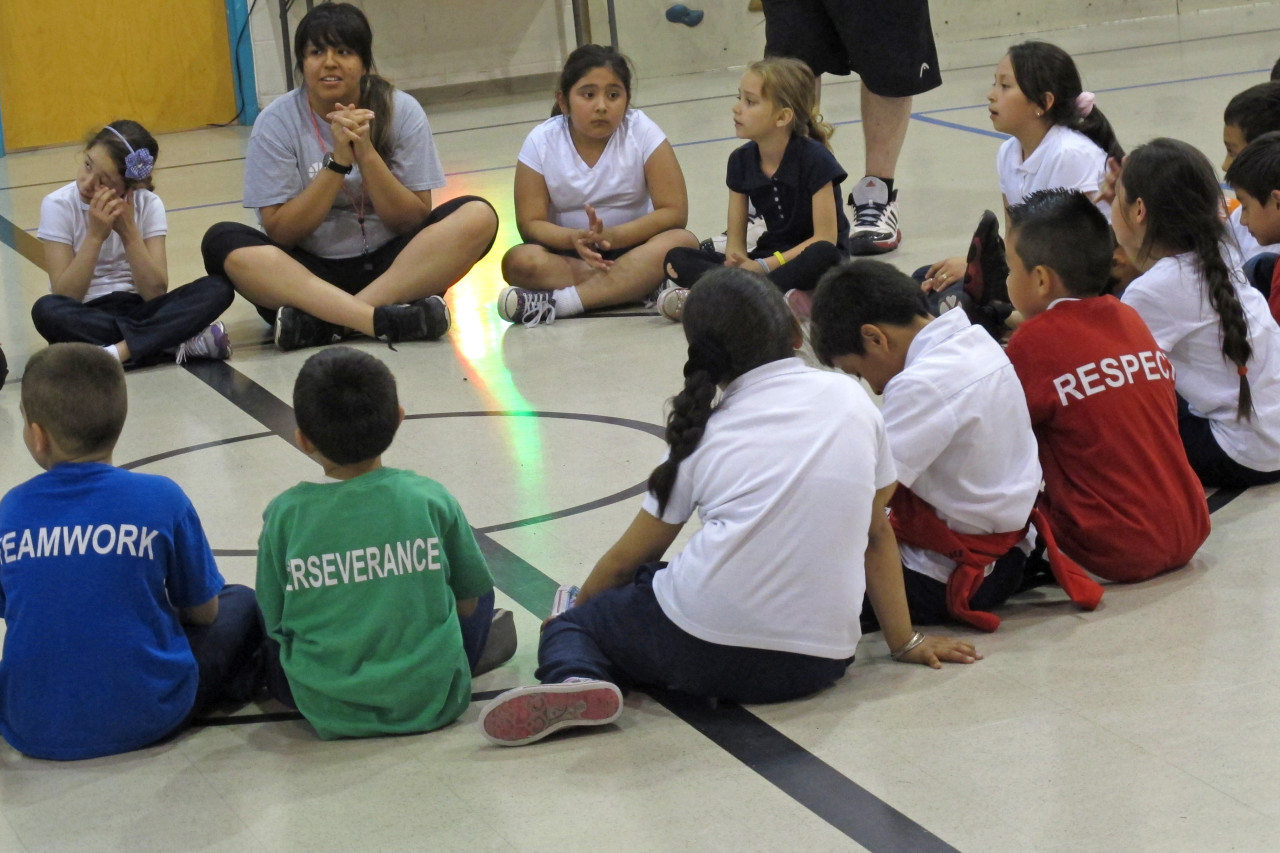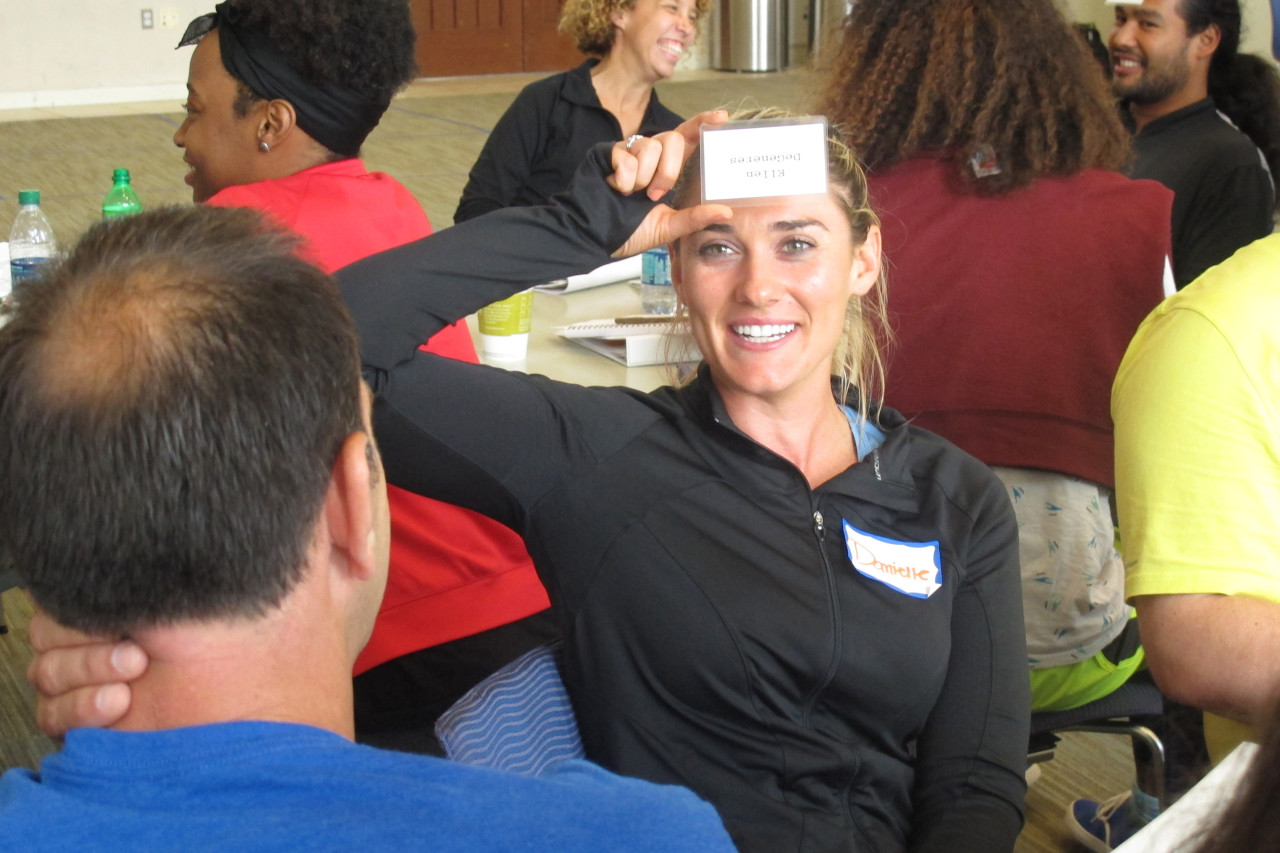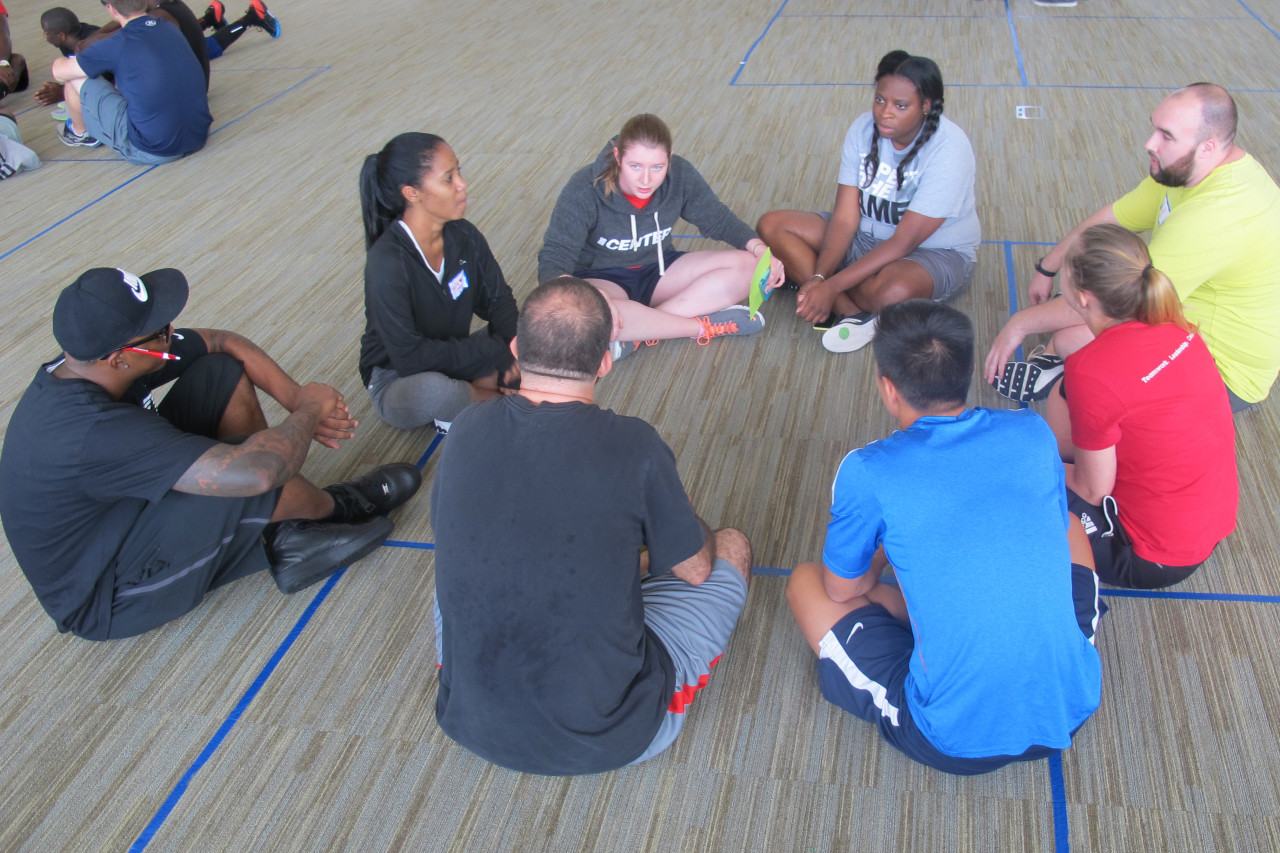Advertisement
Trauma-Sensitive Coaching Transforms Violent Neighborhoods

Physical activity and sport have been linked with better physical health, mental health and educational outcomes for youth. For decades, hundreds of sports-based youth-development programs have been on their own trying to make a difference in this country's poor, violence-prone cities.
But as sports budgets are slashed, especially in urban public school districts where the need is the greatest, an organization is stepping in to provide coaches support and valuable training for hundreds of this country’s sports-based youth-development programs. It's called Up2Us.
'Staying Was The Right Thing To Do'
Rob Castaneda lives in Little Village, a 90,000-person community on the west side of Chicago. Watching a large group of kids playing soccer on a newly installed artificial turf field, it's hard to comprehend that Little Village has been the site of a gang war that’s ebbed and flowed for 50 years. But in June 2013 alone, when Only A Game visited this neighborhood, 10 men between the ages of 18 and 33 were shot, one fatally.
Sixteen years later, Rob Castaneda now plays basketball with some of the people who went to prison for trying to burn down his house.
Castaneda understands what the constant threat of violence does to the kids in this neighborhood.
“Even if you don't see it — the physical act of a shooting happen — you do see the gang graffiti all over the place, you see the broken windows, you see the blood on the sidewalk,” he said. “For us, I think that's what makes it more important to for kids to be able to play.”
Castaneda and his wife Amy moved to Little Village in 1998 when Amy got a job teaching in a local school. One day, after living in the neighborhood for about a year, Castaneda called the police to report gang activity. One of the local gangs found out.
“Three days later they set our house on fire while we were sleeping,” he recalled. “And our initial reaction was, 'This is crazy. Let's get out of here.' But it was actually the girls' basketball team that my wife was volunteer-coaching — they came over and they said, 'You know Mr. and Mrs. Castaneda, you can’t give in to the intimidation.' And you know it really made us think, you know, our kids in our community with these types of things every day, but they don’t have any control over that. They don't have the ability to just kind of leave. So we knew, for us, staying was the right thing to do.”
Advertisement
The gang set their house on fire a second time. The Castanedas stayed. The gang returned to scream death threats through their shattered window. The Castanedas stayed. Recommitting to his community, Rob Castaneda founded Beyond the Ball, an organization working to improve life in Little Village through sport and play.

Sixteen years later, Castaneda now plays basketball with some of the people who went to prison for trying to burn down his house. Some of their kids are in his programs.
“What we want is something that they would want also,” Castaneda said. “That's a better life for their children, a better life for their families and just making our community a better place."
A Common Cause
Castaneda has built Beyond the Ball into a thriving organization that impacts thousands of families in Little Village. But there's only so much Beyond the Ball can do on its own. That's where Up2Us comes in.
[sidebar title="Skateboarding On The Rez" width="630" align="right"] For some Native Americans, skateboarding is more than a recreational activity — it's a reprieve from some of life's challenges. [/sidebar]
“The movement that they've been able to spearhead across this country to kind of give sports-based youth development a united front through Up2Us — it’s been amazing,” Castaneda said.
Beyond the Ball’s programs are run by a cadre of young, energetic coaches who spend as much time teaching values as they do basketball and soccer. As the kids get older, the coaches step out of the way. And every debate — from who picks first to whether a foul was committed — is solved through rock, paper, scissors.
“That’s a peaceful way of solving conflict,” said Michel Tilapa, a coach and an alum of Beyond the Ball. “I mean, if they’re out on the street and they think about, 'Do I really want to fight right now?' No. Just leave it alone. That’s OK.”
Coach Across America
Instead of handing out monetary grants, Up2Us gives the gift of coaches to sports-based youth-development programs across the country. Tilapa is one of 1,700 coaches in 33 states who have served through the Up2Us program, Coach Across America. Up2Us coaches go through an intense four-day training. In August, 100 Coach Across America coaches and 15 site supervisors attended a training sessions in Boston.

Lou Bergholz set the tone.
“While we’re here, all those kids are out there, waiting for you to come back,” Bergholz said. "And you should come back, we hope, transformed."
Bergholz helped design the training program for Up2Us, and he doesn't worry about the best way to teach the play-action pass. Instead, he begins his training session by standing in front of a colored map of the brain pointing to an almond-sized structure called the amygdala.
[sidebar title="A Dream And A Backup Plan" width="630" align="right"] When young athletes come out of the inner city and try to go pro, the road is rarely traveled alone. [/sidebar]
“So the amygdala has one job, and its only job is to look around all day and wonder, ‘Can I eat it or does it eat me?’” he said.
When there’s danger, the amygdala kicks into gear. Muscles get tense, the heartbeat quickens and blood leaves the brain. Higher-level problem solving is out.If the brain is kept in this hyper-alert state for too long or is pushed there too often, scientists say the brain loses its pathways to critical thinking.
Why is this important for a group of young sports coaches to understand? Studies have shown that as many as one-third of children living in America's most violent neighborhoods have post-traumatic stress disorder. That’s nearly twice the percentage of PTSD-affected soldiers returning from Iraq or Afghanistan.
Bergholz says coaches already know what to do when a kid shows up to basketball practice and has no idea how to dribble the ball.
“But you have a kid come and you say, ‘stand here,’ and they stand there, and you say ‘listen here,’ and they are talking," he said. "We think of that as a will issue, that somehow they’re doing it on purpose. They’re misbehaving. But what if it’s also a skill issue?”
The Trauma-Sensitive Coach
The trauma-sensitive coach’s job isn't just to teach basketball players to dribble. It also includes training kids’ brains to redevelop those pathways to critical thinking, as demonstrated during a role-play exercise at the Up2Us training session:
Player: “Oh my god, coach, did you see that? She’s all over me.
Coach: "Calm down."
Player: "Calm down? You calm down! What do you mean, calm down?”
Even though it's just the second day of their training, these young coaches knew that asking a kid whose amygdala is in overdrive to “calm down” doesn't help. Asking "what’s wrong?" isn't any more successful. That only works to escalate the player’s emotions.
Instead, Bergholz suggested asking our role-played basketball player whether she knew what eight-seven-eight meant.
Player: “Eight-seven-eight, no. Eight-seven-eight, I don’t know.”
Coach: “You got eight rebounds so far, seven assists, and eight points. Do you know what a triple double is?”
Player: “Yeah.”
The idea is to get the player thinking, which helps to shut down the amygdala. Megan Bartlett, Chief Program Officer for Up2Us, admitted that this sort of trauma-sensitive training isn't always immediately well-received by old school, traditional coaches.
“Sometimes the kind of traditional sports world folks look at us like we've lost our minds,” Bartlett said. “But there’s an explosive child, if you’re trying to get them on a basketball court, you have to understand that the explosion may not be in their control. And if you kick them off the team, where do they go?"

After a full day of training, the coaches were organized into a four square tournament to test their new skills. Casey Stewart, a new coach with Philadelphia’s Starfinder Foundation, was worried. As a soccer coach, she said she didn't have any hand-eye coordination. But she definitely wasn't apprehensive about the challenges she’ll face working with kids who've seen and lived through so much. About that, she was downright chipper.
“I’m definitely going to learn as much as the kids are going to, but I want to do this,” Stewart said. “I've seen how effective it can be. So I will be chipper because I know that I have a great potential to make a difference, and all of the coaches here have that chance to make a difference.”
More:
This segment aired on September 20, 2014.
